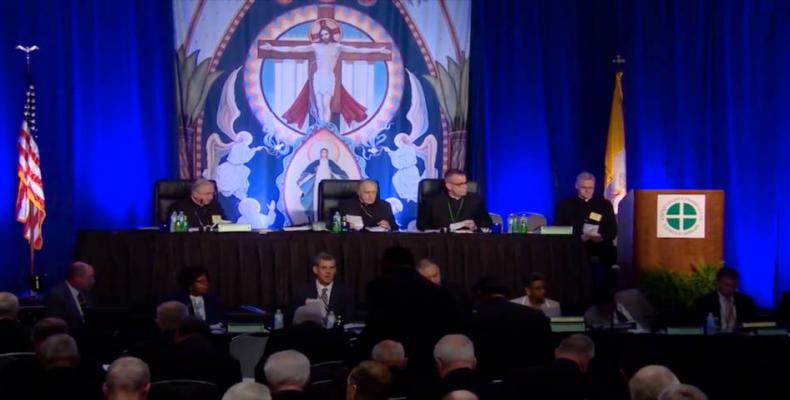Ft. Lauderdale, June 18 (RHC)-- More than 300 Catholic bishops in the United States have blasted the Donald Trump administration’s immigration policies, calling for an end to the separation of migrant children from their parents and condemning Attorney General Jeff Sessions’s policy of ending the right of domestic violence survivors to seek asylum in the United States.
Monsignor Brian Bransfield read from a statement issued by the National Conference of Catholic Bishops during its spring meeting in Fort Lauderdale, Florida. "Separating babies from their mothers is not the answer and is immoral. This decision negates decades of precedents that have provided protection to women fleeing domestic violence. Unless overturned, the decision will erode the capacity of asylum to save lives, particularly in cases that involve asylum seekers who are persecuted by private actors.”
The bishops’ statement came after the Southern Baptist Convention voted unanimously on a resolution that includes a call to keep families together. And Rev. Franklin Graham, a Trump supporter and son of the late evangelist Billy Graham, told the Christian Broadcasting Network it’s “disgraceful” and “terrible” to see families ripped apart.
U.S. Catholic bishops blast “immoral” Trump immigration policy

Articles en relation
Commentaires
Laissez un commentaire
Tous les champs sont requisPlus de visites
- Pressions et chantage américains : imposition d'un mercenaire à la Commission interaméricaine des droits de l’homme de l’OEA
- Le Mexique réfute les accusations de la procureure générale des États-Unis
- Le vice-président cubain appelle au renforcement de la production agricole à l'île de la Jeunesse (+Photo)
- Un haut dirigeant du Parti communiste cubain vérifie les préparatifs du 26 juillet à Ciego de Ávila (+ Photos)
- Iran : Le Parlement adopte la cessation de la coopération avec l’AIEA

